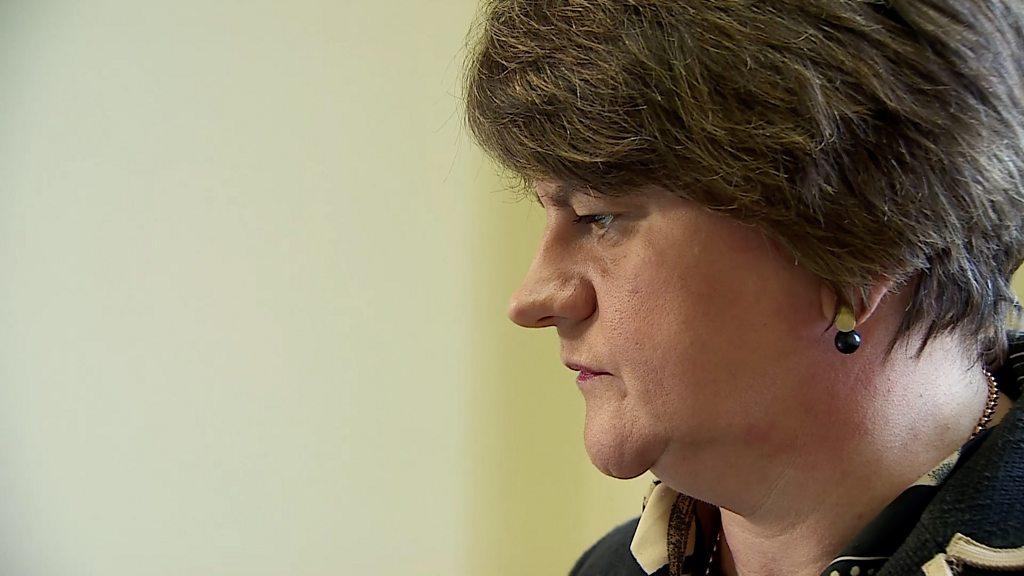Edwin Poots: Majority of DUP MPs and MLAs back leadership bid, says Paul Frew
- Published
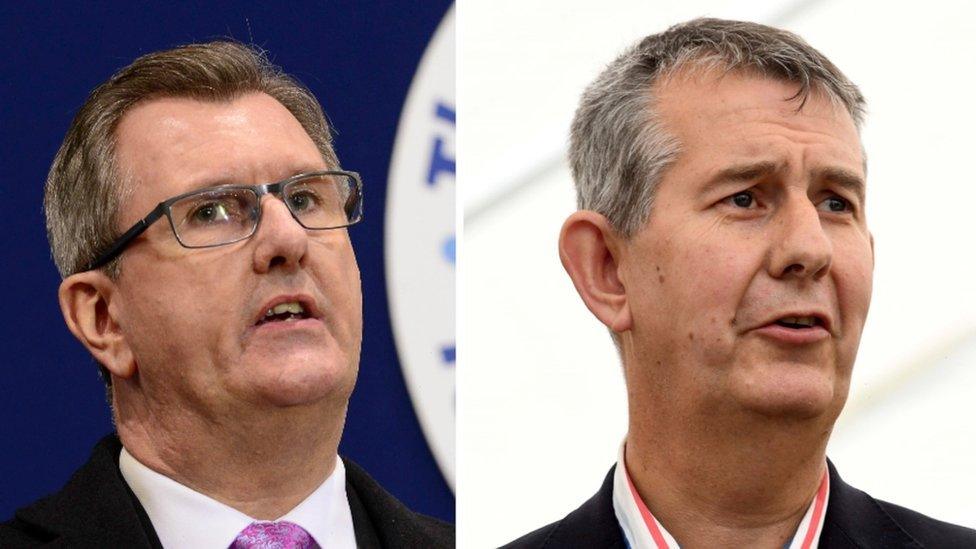
It is understood that Sir Jeffrey Donaldson will make a decision this weekend whether to run for leader, Edwin Poots declared his candidacy on Thursday
Edwin Poots has received endorsements from a majority of the DUP's MPs and MLAs in his bid to become party leader, his campaign manager has said.
Assembly member (MLA) Paul Frew tweeted that he was "grateful for the support Edwin has received from colleagues".
Mr Poots is the only person, so far, to put their name forward to be the next leader of the party.
However, a source close to Sir Jeffrey Donaldson told PA he is "highly likely" to enter the race.
Arlene Foster will step down as Democratic Unionist Party (DUP) leader on 28 May.
Mrs Foster, who announced her resignation on Wednesday, will then step down as Northern Ireland's first minister at the end of June.
Allow X content?
This article contains content provided by X. We ask for your permission before anything is loaded, as they may be using cookies and other technologies. You may want to read X’s cookie policy, external and privacy policy, external before accepting. To view this content choose ‘accept and continue’.

Mr Poots has been a member of the DUP for all of his political career and is Northern Ireland's agriculture and environment minister.
The Lagan Valley MLA announced that he was running for the leadership in a video posted on his Twitter account on Thursday.
Assembly members Christopher Stalford, Paul Givan, Mervyn Storey and Jonathan Buckley and MP Paul Girvan have also appeared in videos endorsing Mr Poots on his Twitter account.
Meanwhile, the Press Association (PA) has reported that a source close to Sir Jeffrey, who is MP for Lagan Valley and the DUP's Westminster leader, said he had received "a significant number of endorsements" from fellow MPs and MLAs.
"He has very strong support from the parliamentary team and has more firm commitments from MLAs than Mr Poots," they said.
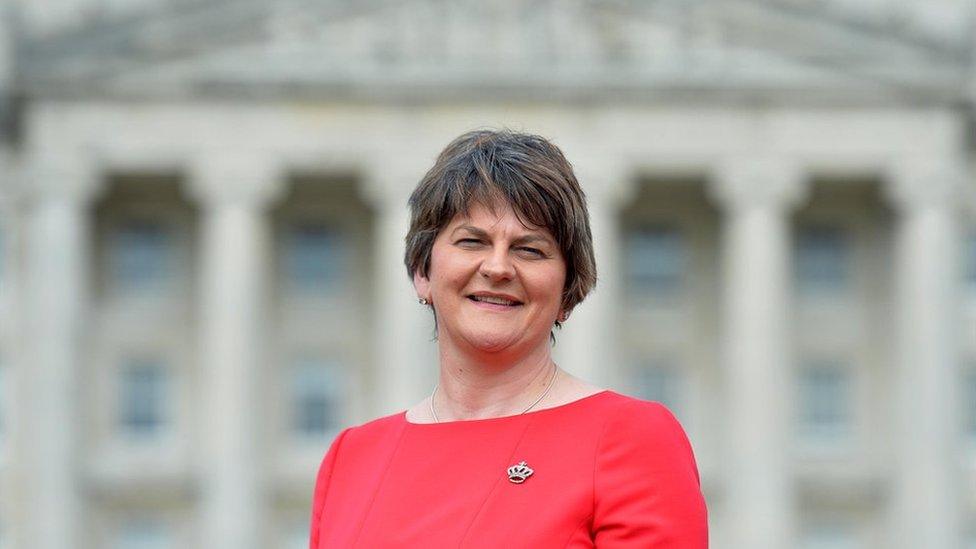
Arlene Foster became DUP leader in December 2015
Mrs Foster, 50, announced her resignation after a letter of no confidence in the party leadership was signed by about 80% of its Stormont and Westminster ranks.
The outgoing first minister said it was important to give space over the coming weeks for the party officers to make arrangements for the election of a new leader.
In a tweet she thanked "the hundreds who have been in touch", saying those who sent messages "don't know how much it means" to her.
Allow X content?
This article contains content provided by X. We ask for your permission before anything is loaded, as they may be using cookies and other technologies. You may want to read X’s cookie policy, external and privacy policy, external before accepting. To view this content choose ‘accept and continue’.

Who could replace Mrs Foster?
There has been speculation of a split role at the helm of the DUP, with one person as first minister at Stormont and a second as party leader at Westminster.
Another possible leadership contender is East Belfast MP Gavin Robinson, although like Sir Jeffrey, he has yet to make his position clear.
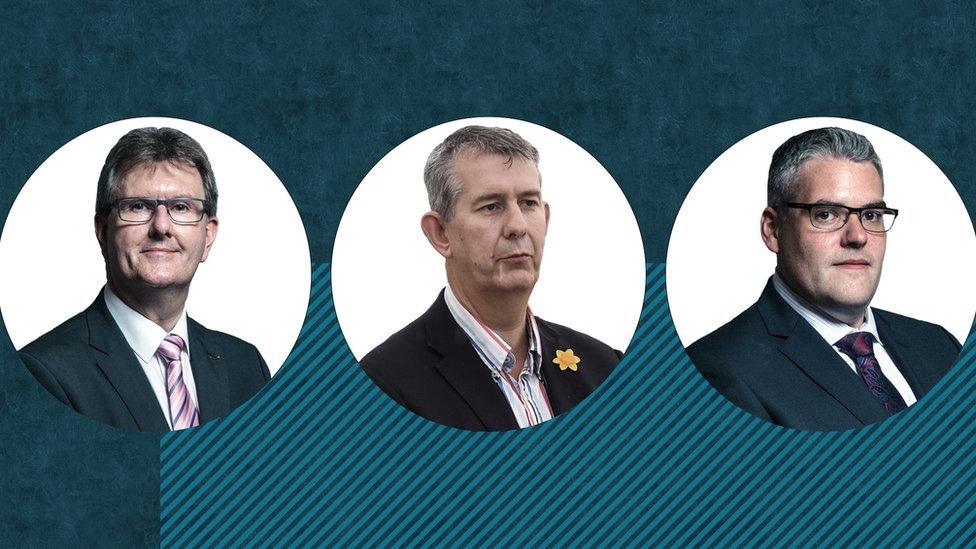
Possible leadership contenders include Sir Jeffrey Donaldson, Edwin Poots and Gavin Robinson
How would a leadership election work?
Only a small number of the DUP membership - MLAs (Members of the Legislative Assembly) and MPs - will get to vote in a leadership contest.
There are 27 MLAs who hold the party whip - including Mrs Foster - and eight MPs.
If a leadership contest does take place, it will be the first in the DUP's 50-year history.
'Who is going to replace Arlene? I don't know who can'
The role of first minister is separate but as the largest party from the largest grouping (unionism) in the assembly, the DUP is entitled to nominate someone to hold the post of first minister.
Once Mrs Foster steps down as first minister, the DUP would then be asked to nominate a replacement within seven days and a vote would be held in the assembly.
If a replacement is not nominated the Northern Ireland secretary is obliged to call an assembly election.
How did we get here?
Mrs Foster has endured a turbulent time as DUP leader and the fallout from Brexit - which the party supported - has put particular pressure on the party's top brass as it faces having to weather the storm caused by the Northern Ireland Protocol, which imposed a border down the Irish Sea.
The aftermath of Brexit caused friction both internally and between the party and some of its core voters who are unhappy at the deal which led to the Irish Sea border.
"It has been the privilege of my life to serve the people of Northern Ireland"
It has also been suggested recent changes to Northern Ireland's abortion laws and the commitment to implement an Irish language act were causing concerns with some elected DUP representatives ahead of next year's assembly election.
On Tuesday it emerged a letter of no-confidence was circulated among the party's MLAs and MPs - more than 20 assembly members and four MPs are understood to have signed it.
There was also pressure from councillors, with concerns ranging from the Northern Ireland Protocol, abortion legislation, same-sex marriage, policing and the recent gay conversion debate at Stormont.
Related topics
- Published29 April 2021
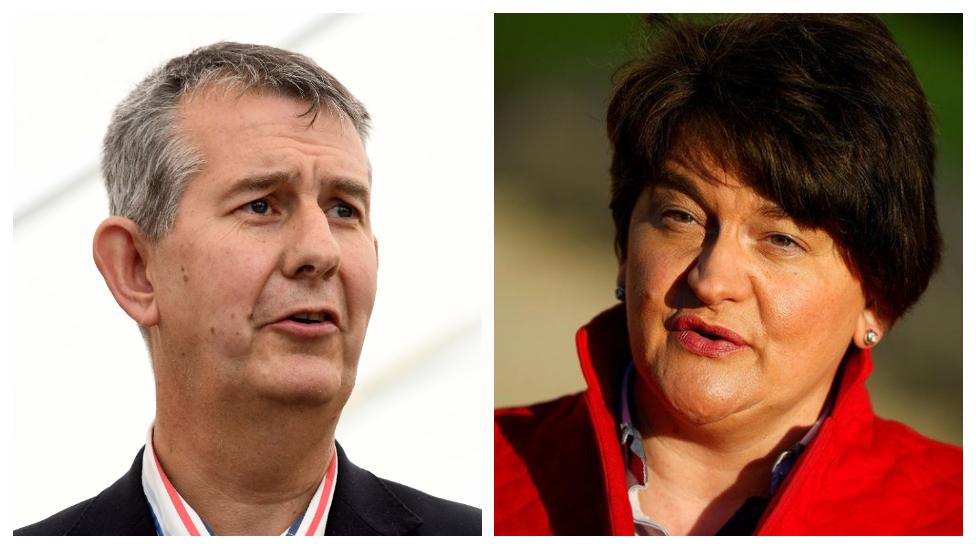
- Published14 May 2021
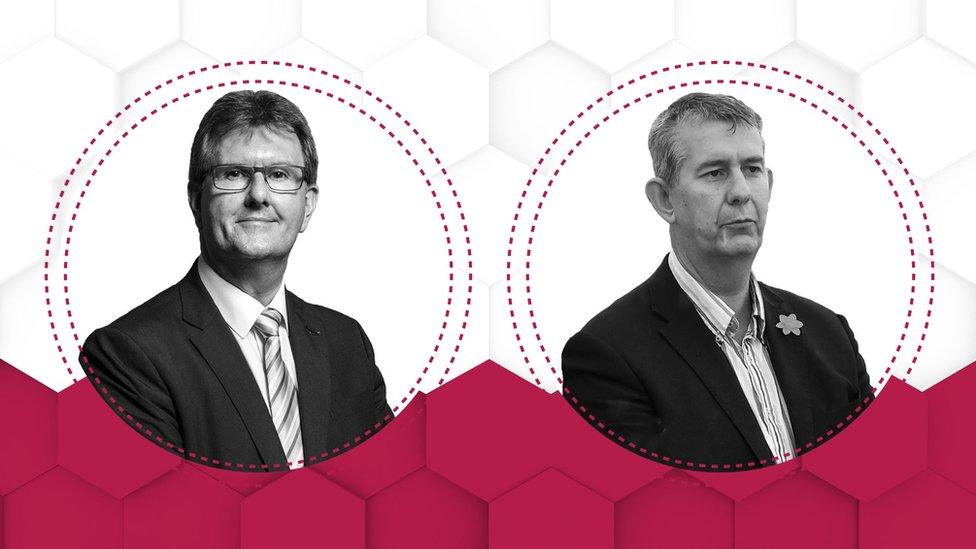
- Published28 April 2021
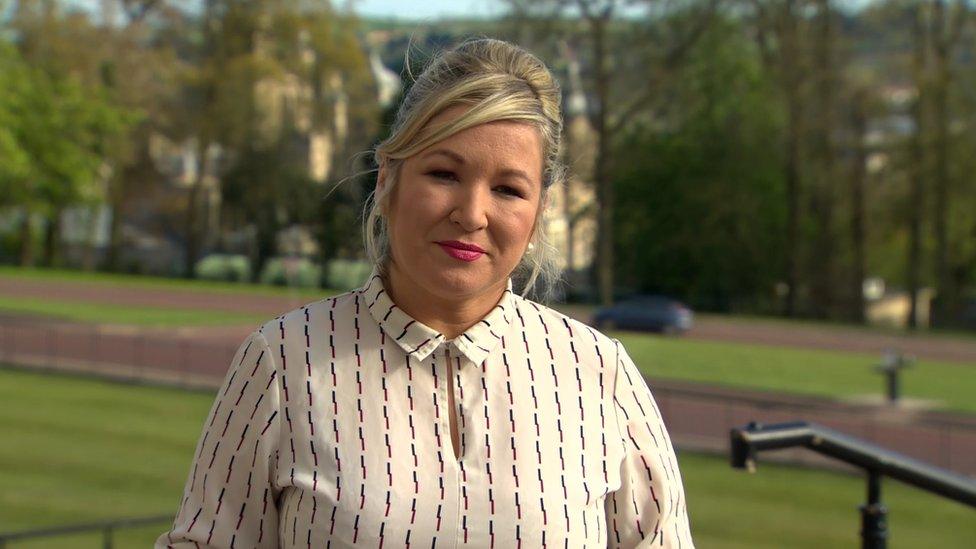
- Published14 June 2021
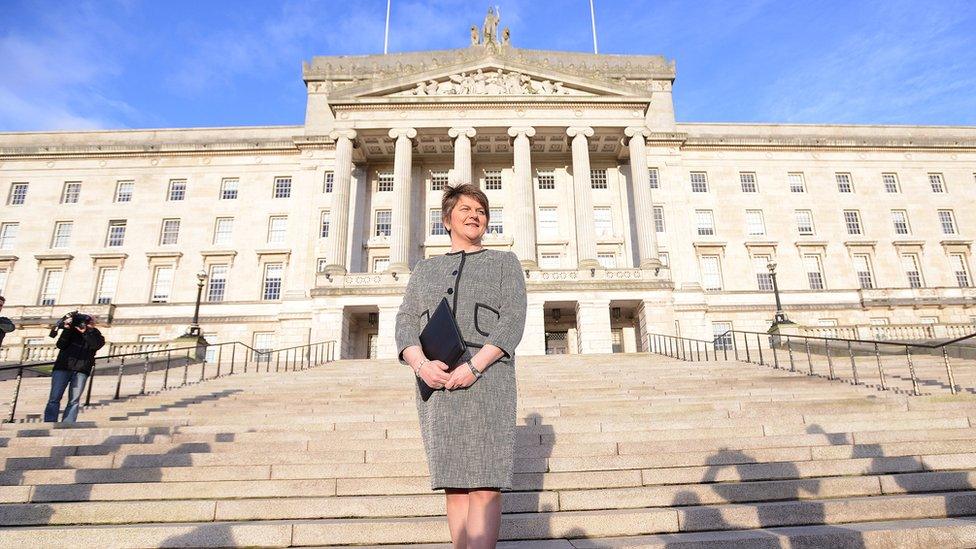
- Published28 April 2021
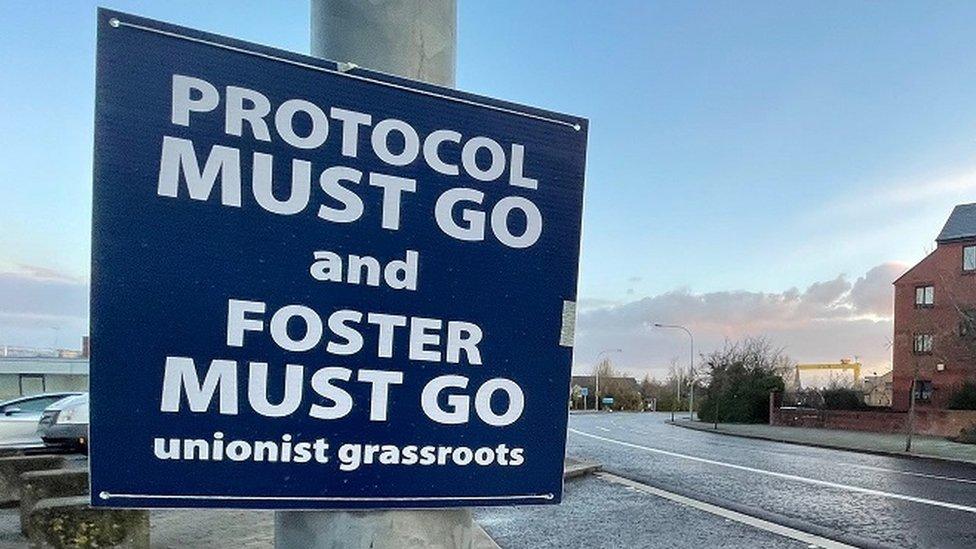
- Published28 April 2021
